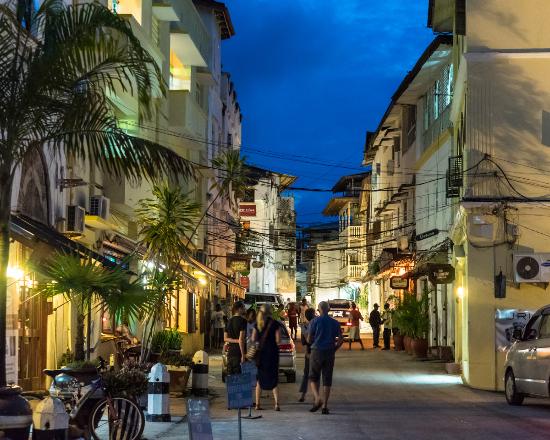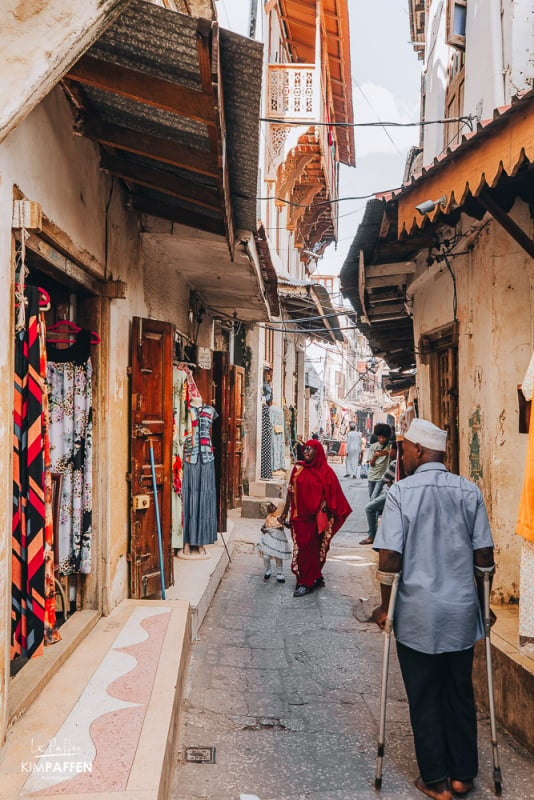Stone Town: A Rich Cultural and Historical Hub in Zanzibar
Stone Town, located on the western coast of Zanzibar, is the historical and cultural heart of the island. Recognized as a UNESCO World Heritage site, this area is a captivating blend of African, Arabian, Indian, and European influences, offering a rich tapestry of architecture, history, and culture. Stone Town’s narrow, winding streets, intricately carved wooden doors, and bustling markets create a vibrant atmosphere that beckons travelers from all over the world.
Architectural Marvels and Landmarks
The unique architecture of Stone Town is one of its most striking features, a testament to its rich history as a trading hub. The streets are lined with old houses, many featuring elaborately carved wooden doors, one of the city’s iconic features. These doors often bear ornate patterns and symbols representing the cultural diversity of the island’s past, with Arabic, Indian, and Swahili influences.
One of the most famous landmarks is the House of Wonders (Beit al Ajaib), once a royal palace and now a museum. Its large verandas and clock tower make it an architectural gem, reflecting the grandiosity of the past. Nearby, the Sultan’s Palace Museum (Beit el-Sahel) provides a glimpse into the life of Zanzibar’s ruling class during the Sultanate era. Another popular site is the Old Fort, the oldest building in Stone Town, originally built by Omani Arabs to defend the city. Today, it serves as a cultural center, hosting events, shops, and exhibitions.
Cultural and Historical Significance
Stone Town’s history as a major trading hub is also intertwined with the history of the East African slave trade. The Slave Market and its adjacent Anglican Cathedral stand as reminders of this dark chapter in Zanzibar’s past. A visit to these sites offers a powerful reflection on the human cost of this trade, with exhibits that delve into the island’s role in the global economy during the 19th century.
Stone Town is also famous as the birthplace of Freddie Mercury, the legendary lead singer of Queen. His former home is now a popular stop for visitors, offering a glimpse into his early life in Zanzibar. Another significant cultural site is the Forodhani Gardens, a waterfront park where locals and tourists alike gather to enjoy the bustling evening food market, offering a variety of local dishes such as Zanzibari pizza, seafood, and tropical fruits.
Markets and Local Life
The soul of Stone Town can truly be felt in its markets. The Darajani Market is a vibrant hub where locals sell spices, fresh produce, and handicrafts. This market reflects the daily life of Zanzibaris, and the bustling atmosphere is a sensory experience filled with the aromas of cloves, cinnamon, and other exotic spices for which the island is famous.
The narrow streets are also lined with local shops selling everything from traditional Tinga Tinga paintings and textiles to finely crafted jewelry and local clothing. These markets provide an opportunity for visitors to engage with the local community and take home a piece of Zanzibar’s vibrant culture.
Religion and Spirituality
Stone Town is a religiously diverse area, with Islam playing a predominant role in local culture. Mosques, such as the Malindi Mosque, are scattered throughout the town, showcasing the island’s Islamic heritage. There is also a significant Christian presence, as evidenced by the Anglican Cathedral, built on the site of the former slave market. This blending of religious influences reflects Zanzibar’s historical role as a melting pot of different cultures and beliefs.
A Living Museum
Walking through Stone Town feels like stepping back in time. The area is a living museum, where each street, building, and landmark tells a story of Zanzibar’s rich cultural heritage. While the town preserves its historical charm, it remains a vibrant part of modern Zanzibar life, with locals going about their daily routines amidst the backdrop of centuries-old buildings.
With its stunning architecture, rich history, and vibrant cultural scene, Stone Town offers visitors a deeply immersive experience, providing a window into the soul of Zanzibar. Whether you are exploring its historical landmarks, sampling local cuisine, or simply wandering its labyrinthine streets, Stone Town is an essential stop for anyone visiting the island.


